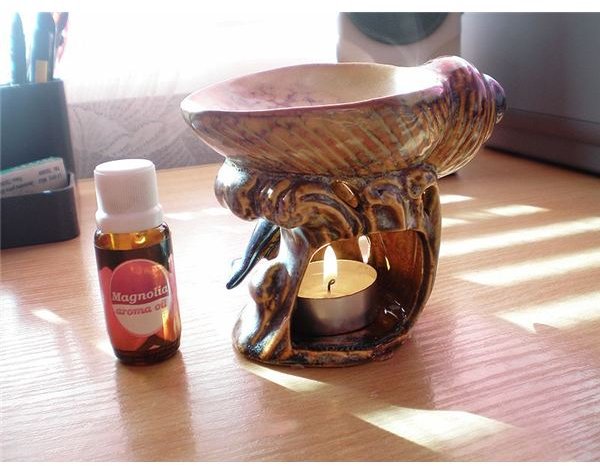Natural Remedies for Postpartum Depression - Do They Work?
Causes of Postpartum Depression
Before considering the effectiveness of natural remedies for postpartum depression it is helpful to consider the causes. As with many other forms of depression it is often not entirely clear what the causes are. Hormones have been cited by many scientists but research does not indicate that hormones are significantly different in women experiencing postpartum depression than those who do not.
Instead, it appears that a complex mixture of environmental and social factors are often to blame. Self-esteem issues, unsupportive partners or marriage problems, fatigue suffered after the pregnancy and even a lack of support due to sociocultural group have all been cited. Seeing postpartum depression as more than just a physiological condition helps to explain why it is also seen in men, with the incidence as high as 25% according to some studies.
Natural Remedies for Postpartum Depression
When assessing the effectiveness of natural remedies for postpartum depression it is therefore helpful to remember that the cause may be as much mental as physiological and therefore placebo or ‘context dependent medicine’ can play a big part in influencing results.
This often makes it difficult to show whether a particular form of treatment is effective or not. However a number of natural remedies have been shown to be successful; counselling and cognitive behaviour therapy in particular help large numbers of women to recover from postpartum depression. Homoeopathy is another popular remedy, while St John’s wort and aromatherapy are other treatments that can help give patients the boost they need to lift themselves out of the malaise.
Homeopathic Treatment for Postnatal Depression
There is an extensive body of research regarding the effectiveness of homoeopathic treatment across a wide range of medical disciplines; however there is relatively little specifically relating to its effectiveness in treating depression.
Research in other areas of medicine suggest that homoeopathic treatment is no better than a placebo and is not effective in treating many of the ailments it claims to cure. However, a 2005 study restricted to homoeopathic treatment within the field of mental health found that there was a relative paucity of good data and drew no conclusion as to whether it worked or not. Ultimately it is still not clear whether homoeopathy can be effective in treating postpartum depression.
St John’s Wort Extract
St John’s wort has been renowned as a treatment for depression for many years and as such there is a great body of research on its efficacy. By and large studies have been positive, with some scientists believing it to be as effective as Prozac without many of the harmful side effects. Chemical analysis has shown that one of the active chemicals in the plant can influence serotonin levels in the brain, which is believed to help cure depression of many kinds.
While the drug itself displays few side effects, however, it is known to magnify or negate the effects of medicines. Patients should always check with their doctor before taking St John’s wort with other drugs.
Aromatherapy Treatment
Scientists in Japan have recently discovered that linalool, a chemical present in many plants used in aromatherapy, is effective for stress upon inhalation. Furthermore, aromatherapy baths or massages are relaxing experiences in themselves and can further help to soothe a patient. Stress can be a factor influencing the development of postpartum depression and so aromatherapy can be a successful treatment.
Natural remedies, therefore, can be very effective in treating postpartum depression; however, patients should be careful when selecting the remedy. While there is no significant evidence yet to show that homoeopathy doesn’t work for postpartum depression, there is very little evidence to show that it is any better than a placebo. St John’s wort and aromatherapy, on the other hand, are two kinds of natural remedy that have been proved to be effective. Counselling and CBT are other forms of treatment that should be strongly considered, either separately or in conjunction with other medicines.
References
BUPA, “Postnatal Depression”, https://hcd2.bupa.co.uk/fact_sheets/html/postnatal_depression.html
Daily Mail, “‘St John’s Wort plant as effective as Prozac at treating depression’ say scientists”, https://www.dailymail.co.uk/health/article-1072414/St-Johns-Wort-plant-effective-Prozac-treating-depression-say-scientists.html
Pilkington, P. et al (2005) “Homeopathy for depression: a systematic review of the
research evidence” https://eprints.wmin.ac.uk/1609/1/Pilkington_Kirkwood_Rampes_Fisher_Richardson_2005_final.pdf
Science Daily, “Stop and Smell the Flowers: The Scente That Can Really Soothe Stress” https://www.sciencedaily.com/releases/2009/07/090722110901.htm
The Sunday Times, “Homeopathy – what a waste of time”, https://www.timesonline.co.uk/tol/comment/columnists/guest_contributors/article3798760.ece
Picture credit - image released under GNU Free Documentation License
